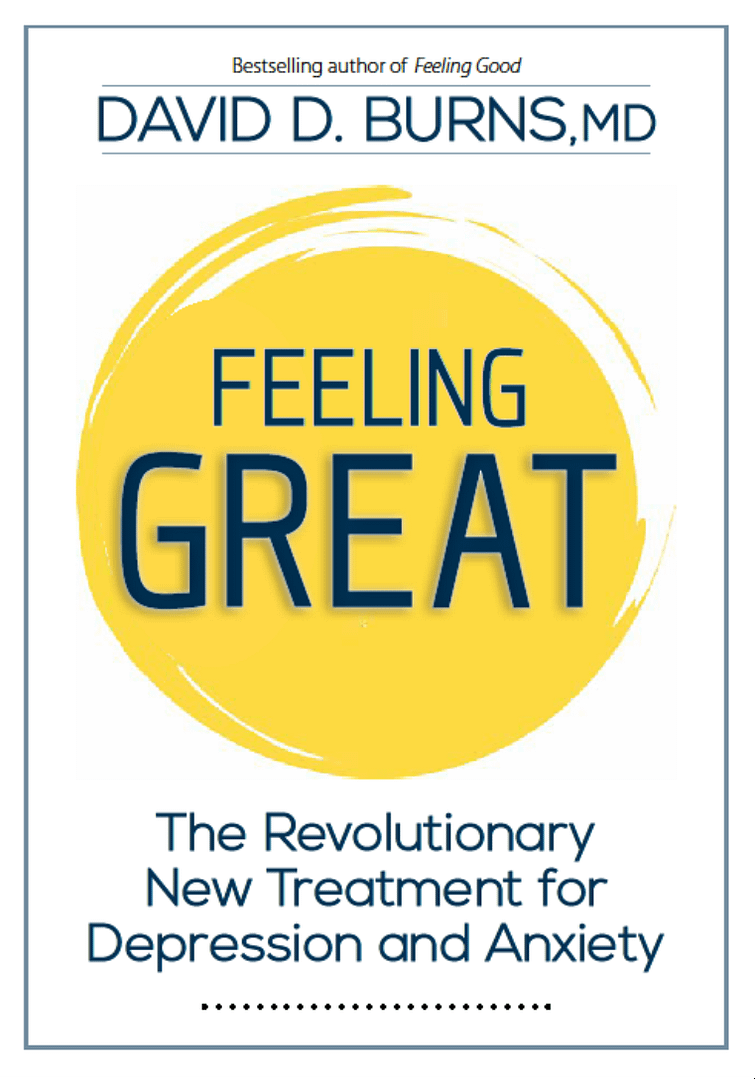Live Therapy with Cody, Part 2 of 2
Last week we presented the first of our session with Cody, a young man wanting help with his fairly severe social anxiety since childhood. My co-therapist for this session was Dr. Rhonda Barovsky, the Feeling Good Podcast co-host, and Director, Feeling Great Therapy Center.
Today, you will hear the exciting conclusion of his session, and the follow-up as well!
Part 2
M = Methods
We focused on cognitive work and interpersonal exposure techniques as well. I will leave it to you to listen to the podcast, as I became so engrossed in what we were doing that I stopped taking notes. However, we used a number of tools within the group, including:
-
Identify the Distortions in his thoughts
-
Examine the Evidence
-
Externalization of Voices
-
Self-Disclosure
-
Rejection Practice
-
The Experimental Technique
-
The Feared Fantasy
And more.
Cody received an abundant outpouring of love, respect, and encouragement from those in attendance (LINK).
We also gave Cody two “homework” assignments to complete following the group.
-
Do at least three Rejection Practices in the mall and notify the training group members via email within 24 hours that he had completed this assignment.
-
Complete the Positive Thoughts column of your Daily Mood Log.
If you’d like to see Cody’s complet4ed Daily Mood Log, you can check this LINK.
If you’d like to see Cody’s intimal and final Brief Mood Survey plus Evaluation of Therapy session, check this LINK. As you can see, there were dramatic changes in all of his negative feelings. However, he wanted to retain some anger toward his childhood friends who made fun of him.
Here’s the email we received from Cody about his homework assignment.
Hello groupers, I can proudly say mission accomplished! Although it took me around 7 hours to do it, I did it.
A lot of emotions came up as I kept trying and chickening out. I really feel like something has changed in me, by the last person I felt almost no anxiety and now I keep asking myself why I was ever afraid of this (I hope it sticks. I know I’ll need to keep up this momentum I’m sure).
Having to do this email and being held accountable to you all was what drove me to the finish line. Thanks again, see you all next week!
Thanks to you, Cody. You were incredibly inspiring in group and after and the work you did will touch the hearts of many people, just as you have already touched the hearts of all the people in our group!
And thank you all for listening!
Cody, Rhonda, and David
Dr. Rhonda Barovsky is a Level 5 Certified TEAM-CBT therapist and trainer and specializes in the treatment of trauma, anxiety, depression, and relationship problems. Check out her website: www.feelinggreattherapycenter.com.
You can reach Dr. Burns at david@feelinggood.com.
This is the cover of my new book, Feeling Great.
The hardbound on sale right now on Amazon, and it’s ridiculously cheap!
The kindle, paperback, and audio versions are available now too! Check it out!



